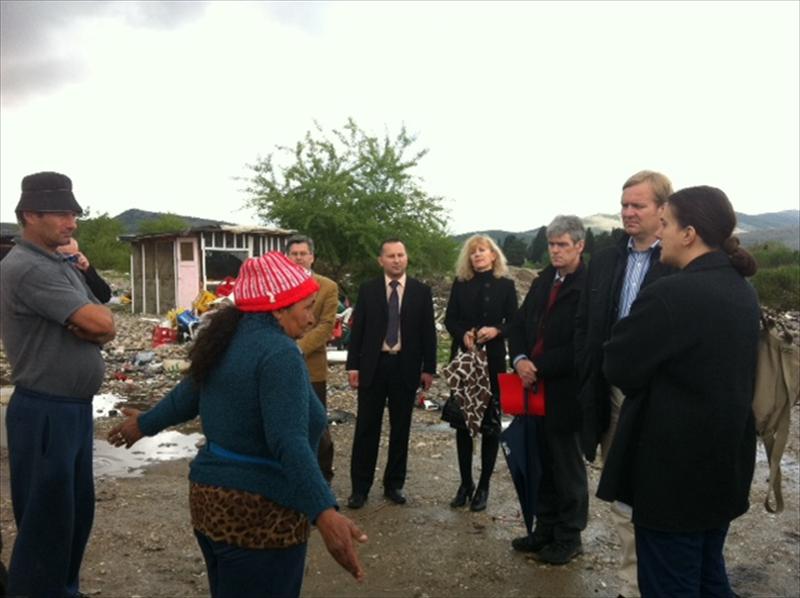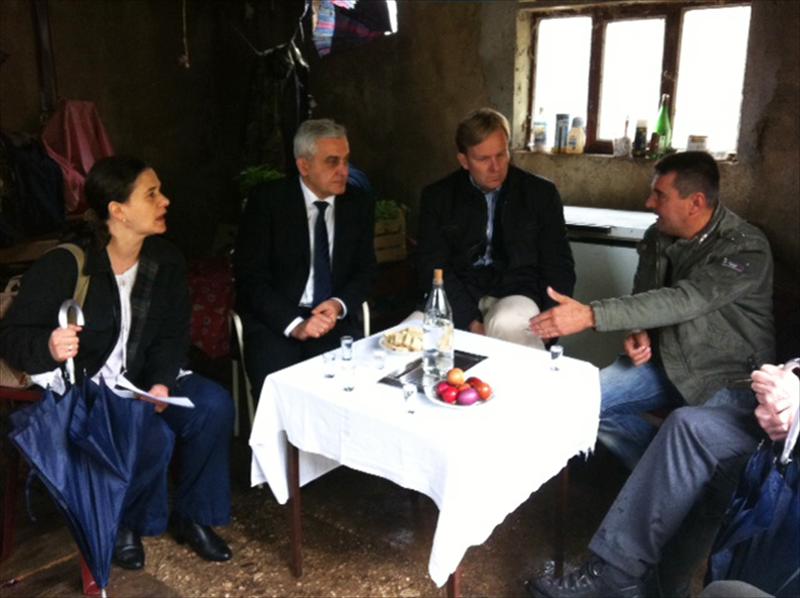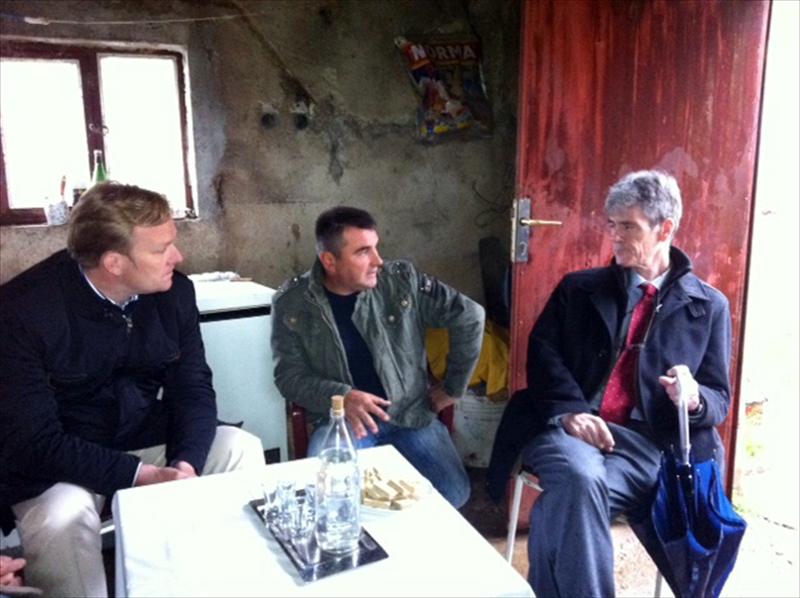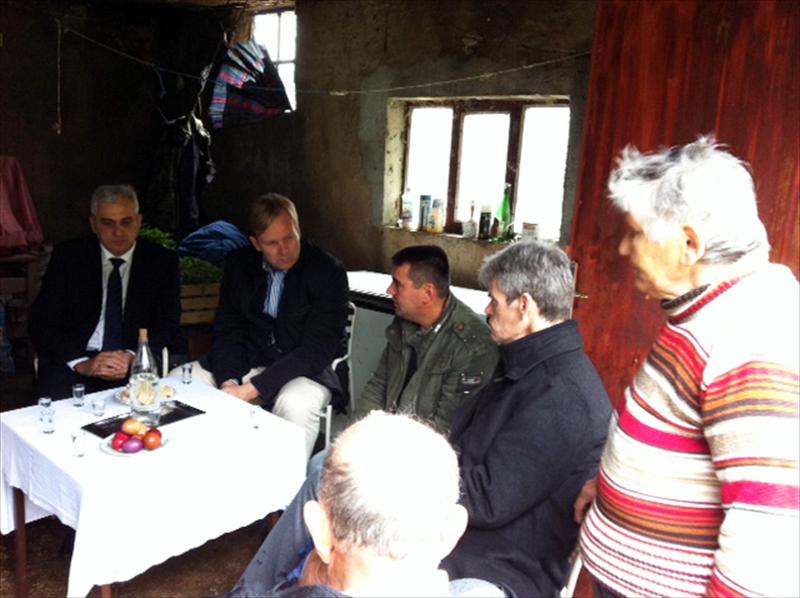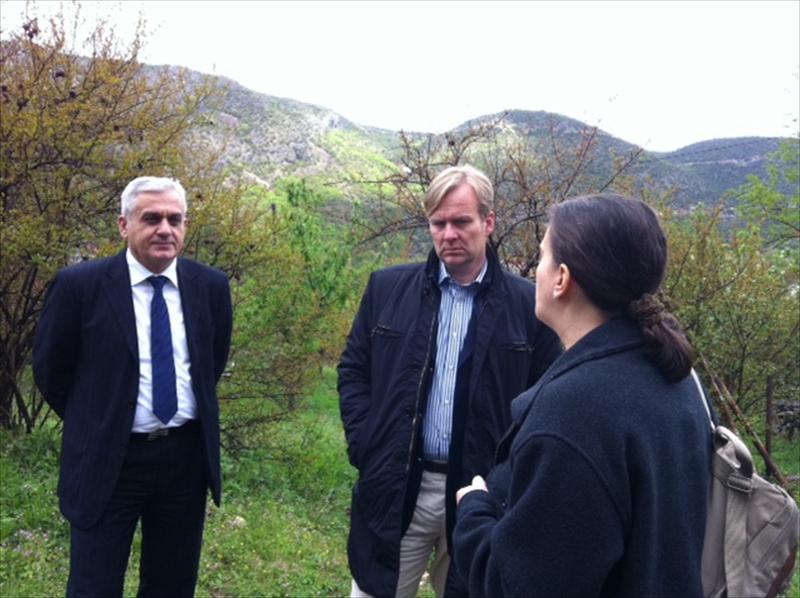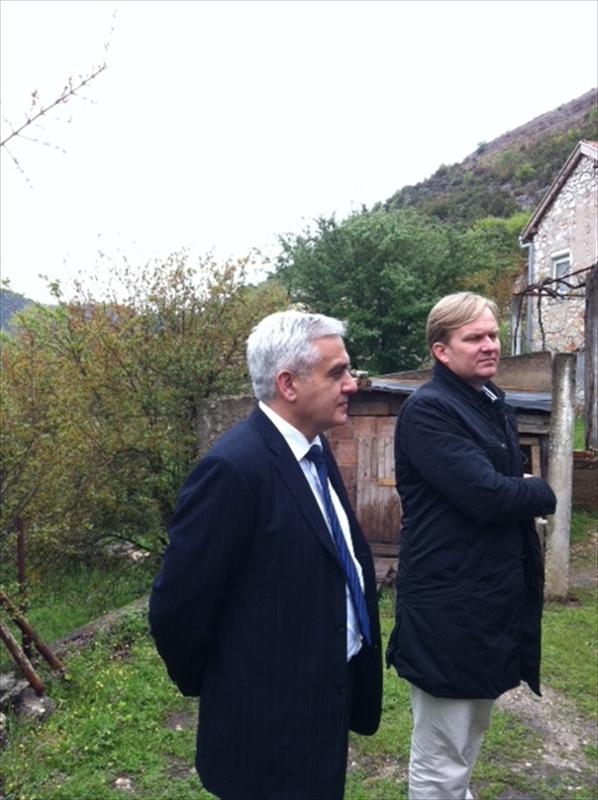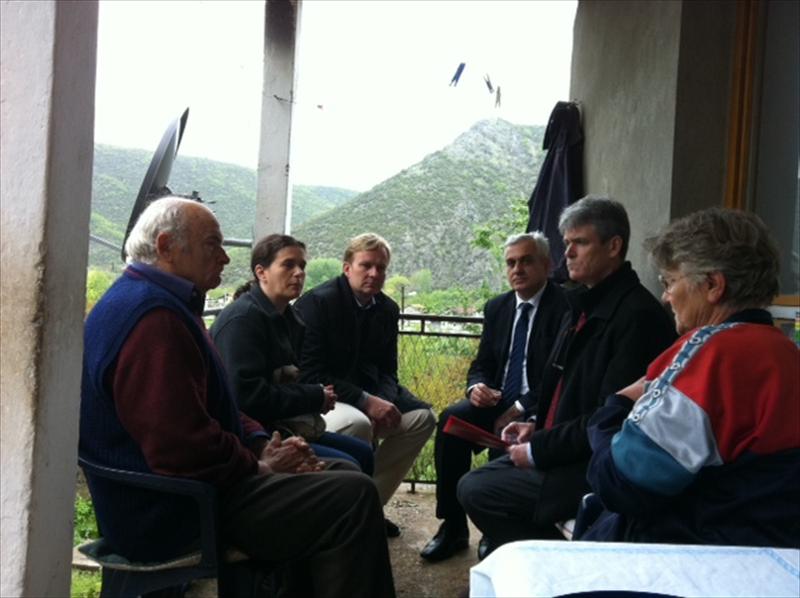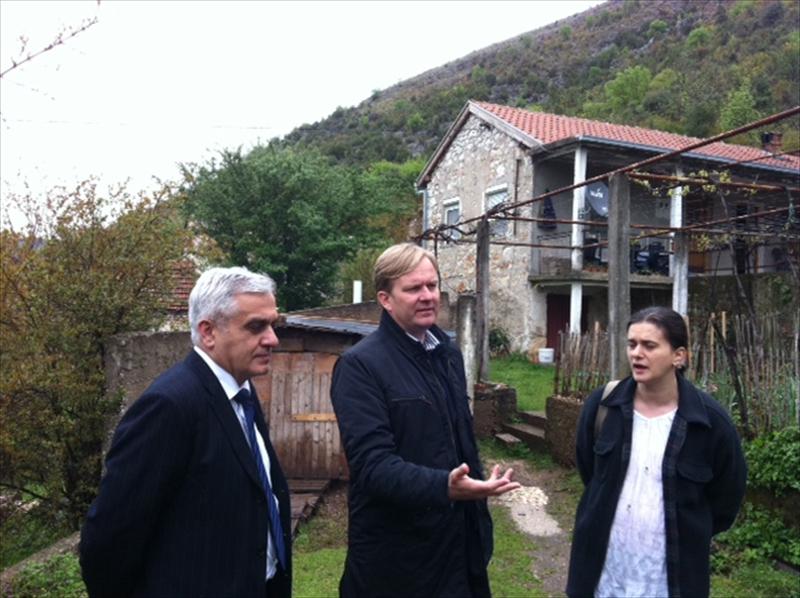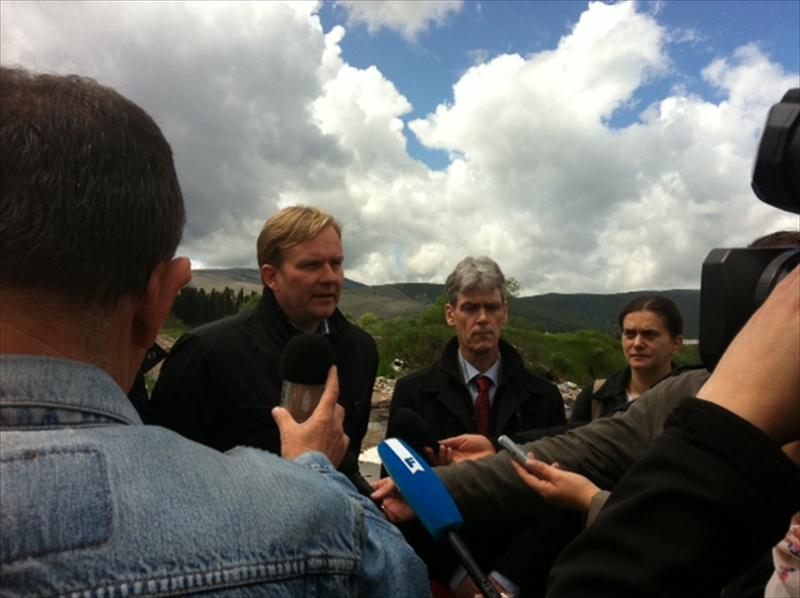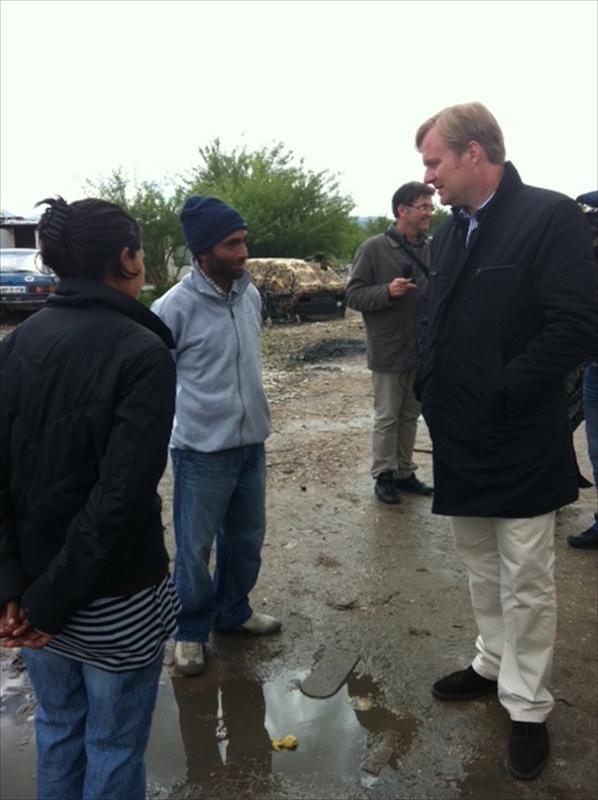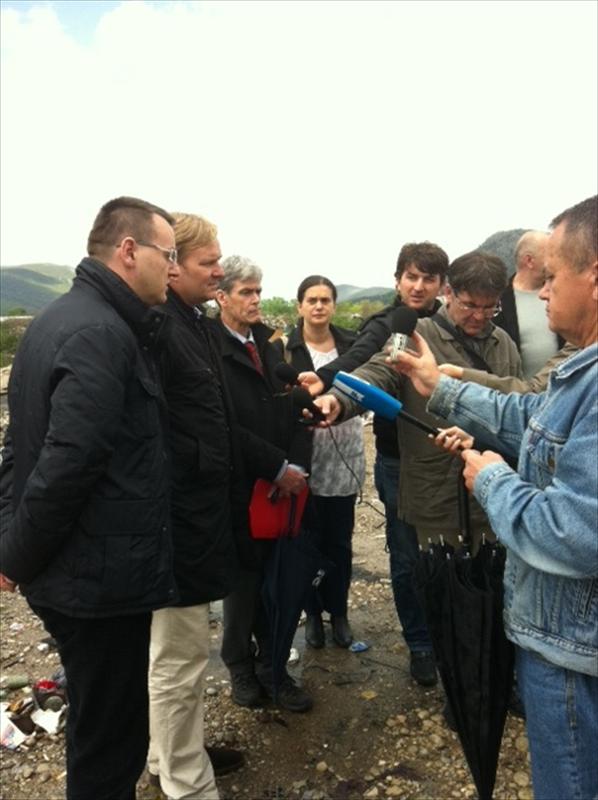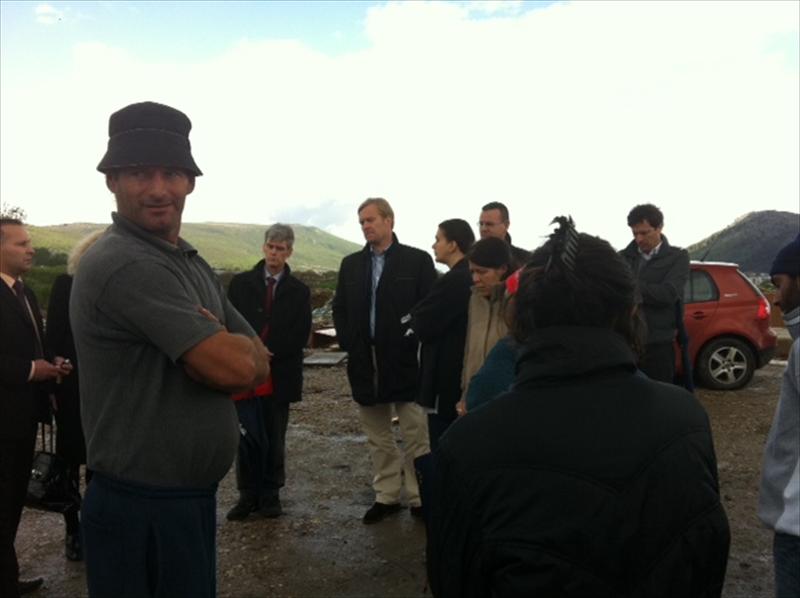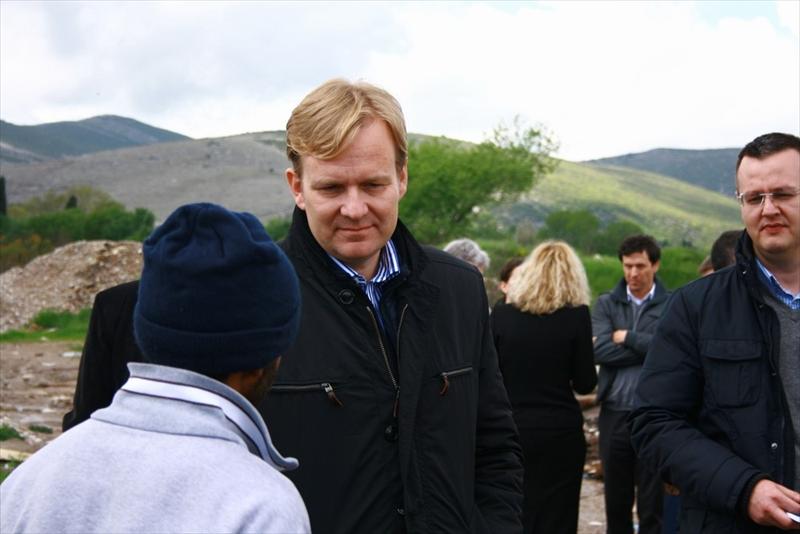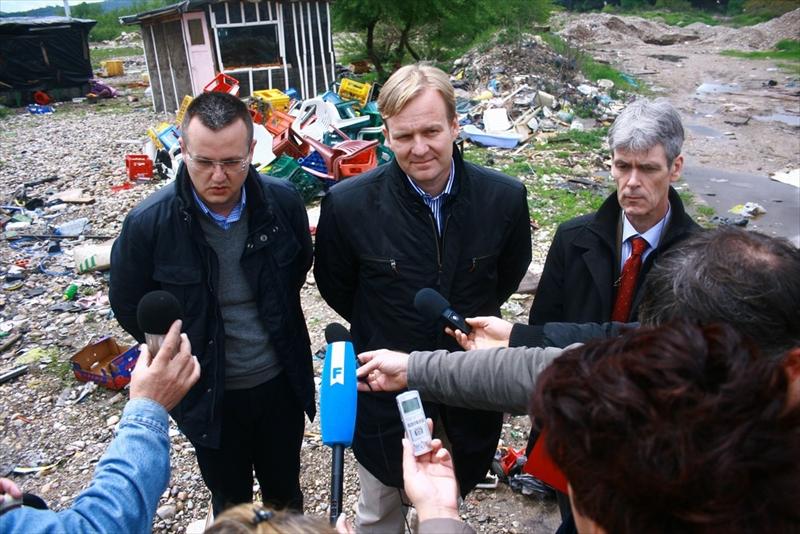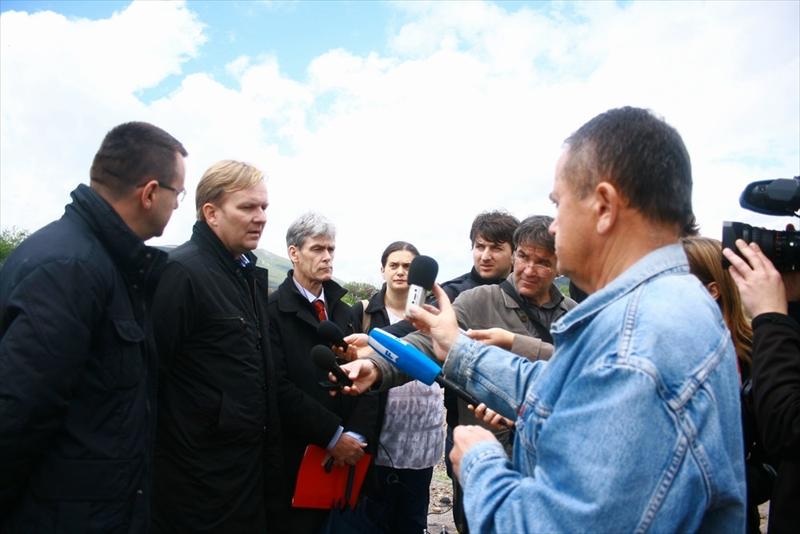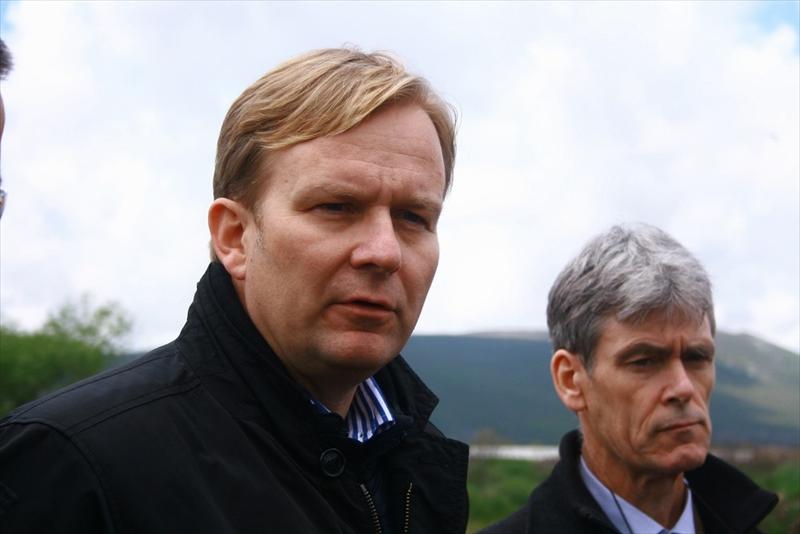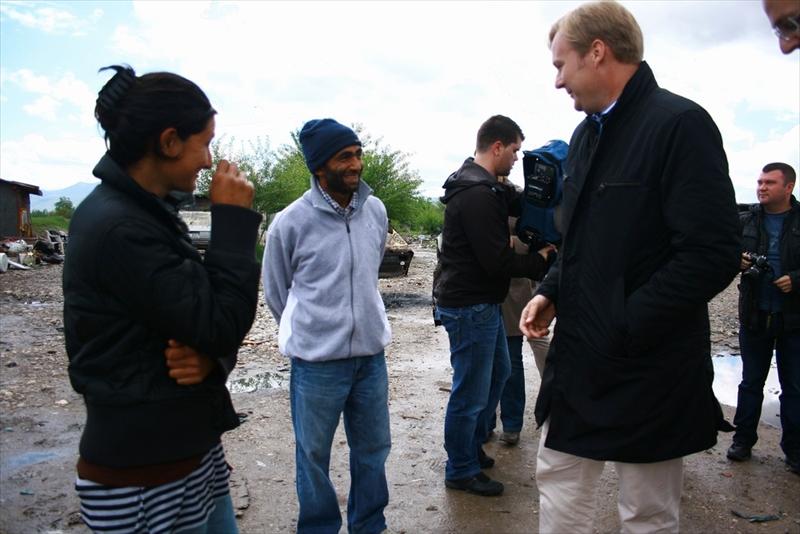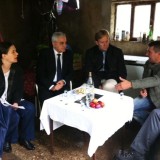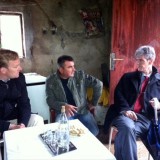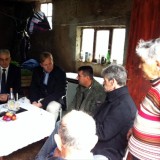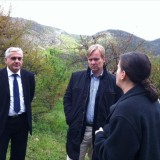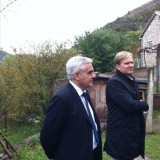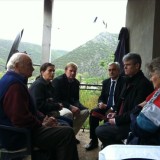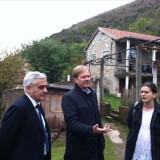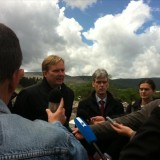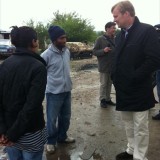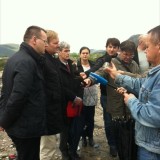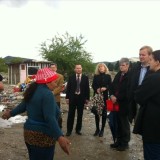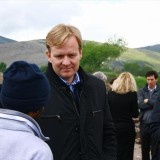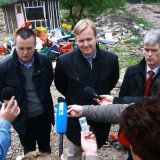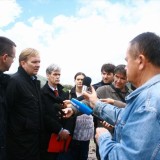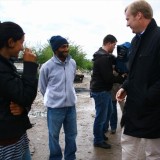Today, on a visit to Ada Roma near Capljina, UNHCR Representative Andrew Mayne and the Head of the Delegation of the European Union/EU Special Representative Ambassador Peter Sorensen called for dignified solutions for Roma living on the margins of society.
31 people, including 14 children, currently live on the garbage dump with shelter constructed from disposed doors and windows. The living conditions are extremely difficult as the families live in poverty, without basic sanitation, running water, food or electricity.
During the visit, the ambassadors also met with the family of Ajla Adjovic, a 6-year old girl who died in a fire last November when the wooden dwelling caught fire.
Ambassador Peter Sorensen said:
“The death of Ajla was shocking, even more so as it could have been prevented. Children have the right to live in a safe environment and it is the duty of us all to ensure they are protected. Together with the local authorities we need to find a sustainable resolution to this situation.
“The European Union has earmarked 2.5 million EUR for the implementation of the Roma Action plan under IPA 2011 and another project implemented by CARE in the amount of 0.5 Mio EUR is ongoing. I appeal also to the responsible authorities to take concrete steps to provide these children and their families with safe and secure housing and access to their basic social rights.”
UNHCR Representative Andrew Mayne said:
“Such a preventable tragedy reminds us all to do whatever we can to help create a fairer society. Sadly, many Roma children do not even have birth certificates. This means that they often will not receive basic health care and education, and will make it hard for them to earn a living and support their own families later on. UNHCR and its national partners are helping Roma families obtain the essential documents they need to live a normal life. But everyone in Bosnia today can help to make sure that children like Ajla get a better chance in future. If we can solve this problem, the whole society will benefit.
Later in the day Ambassador Sorensen and Representative Mayne visited minority returnees in Mostar and collective centre residents in Capljina where 40 families live, including elderly and children.
The visit comes ahead of the International Donors’ Conference that will be held in Sarajevo on 24 April, organized by the Bosnia and Herzegovina Ministry of Human Rights and Refugees.
The conference aims to raise funds for a Joint Regional Housing Programme, which will be presented by the four partner countries (BiH, Serbia, Montenegro and Croatia) and will provide durable housing solutions for some 74,000 individuals. In BiH 5,400 families are expected to benefit from the project. These are most vulnerable refugees, returnees and internally displaced persons who 16 years after the war remain without durable housing solutions.
- ENG
- BHS
- Home
- About us
- BiH and the EU
- EU projects in BiH
- EU policies
- Agriculture, rural development, fisheries, food safety, veterinary and phytosanitary
- Business
- Climate action
- Cross-cutting policies
- Culture, education and youth
- Democracy and Human Rights
- Development and Humanitarian Aid
- Economy, finance and tax
- Employment and social rights
- Energy and natural resources
- Environment, consumers and health
- External relations and foreign affairs
- Area of justice, liberty and security
- Regions and local development
- Science and technology
- Transport and travel
- Press corner
- Publications
- Tenders and funding
- What’s the EU?
- Ambassador's blog
- Vacancies

